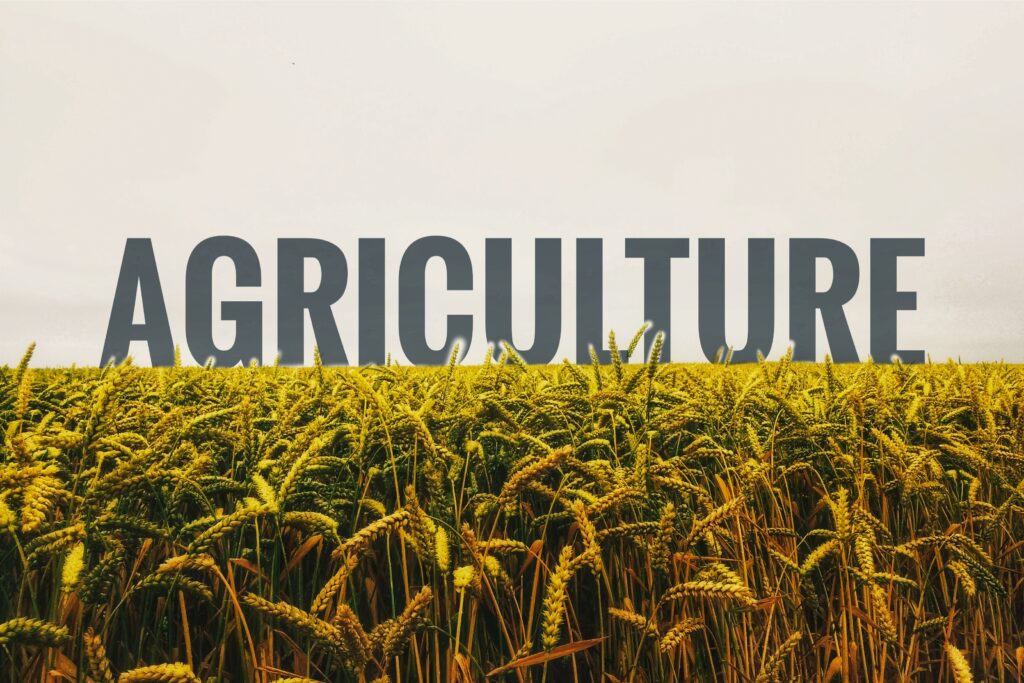What is Agriculture and importance of Agriculture in India

Agriculture is the science, art, and practice of cultivating soil, growing crops, and raising animals for food, fiber, medicinal plants, and other products used to sustain and enhance human life. It includes a wide range of activities, including crop production, animal husbandry, forestry, and fishery.
Definition of agriculture:
Agriculture is defined as the art, science, and the business of producing crops and livestock for economic purposes.
Agriculture as art holds the knowledge to perform the operations of the farm in a skillful manner.
Agriculture as a science, agriculture aims at maximizing the yield and profit by taking advantage of all modern technologies developed on scientific principles such as crop improvement, crop protection, crop production, economics, etc.,
Agriculture as business aims at the management of land, labor, water, and capital. To maximizing net return by employing the knowledge of various sciences for production of good quality food, fiber, and fuel,

Importance of Agriculture in India
Agriculture holds immense importance in India due to its significant contributions to the country’s economy, society, and overall development. Here are the key points highlighting its importance:
- Economic Backbone:
- Agriculture contributes about 18% to India’s GDP.
- It is the primary source of livelihood for approximately 58% of the Indian population.
- Employment:
- Provides employment to around half of the workforce, particularly in rural areas, reducing unemployment and underemployment.
- Food Security:
- Ensures a stable food supply, crucial for a country with a large and growing population.
- Helps in achieving self-sufficiency in staple foods like rice, wheat, and pulses.
- Raw Materials:
- Supplies essential raw materials to industries such as textiles, sugar, and food processing.
- Supports other sectors like dairy, poultry, and fisheries.
- Export Earnings:
- Agricultural products like spices, tea, coffee, cotton, and rice are significant export commodities.
- Contributes to foreign exchange earnings, boosting the national economy.
- Rural Development:
- Drives development in rural areas by improving infrastructure, such as roads, markets, and storage facilities.
- Enhances the standard of living for rural populations.
- Cultural Significance:
- Agriculture is deeply intertwined with Indian culture, traditions, and festivals.
- It influences various social customs and rituals.
- Sustainability and Environment:
- Sustainable agricultural practices help in conserving soil, water, and biodiversity.
- Promotes organic farming and eco-friendly practices.
- Poverty Alleviation:
- Vital for poverty reduction, especially in rural regions where agriculture is the mainstay.
- Increases income levels and reduces vulnerability to economic shocks.
- Economic Stability:
- A robust agricultural sector ensures stable food prices and mitigates inflationary pressures.
- Acts as a buffer during economic downturns by providing consistent output and employment.
In summary, agriculture is the lifeline of the Indian economy, playing a crucial role in sustaining the population, driving economic growth, and promoting social well-being.
Agriculture is a wide sector having many branches of agriculture which deals with the production of various crops which includes food crops, fodder crops, fiber crops, sugar, oilseeds, etc.
You can check out our brief article on various branches of agriculture – A comprehensive guide 2024.
